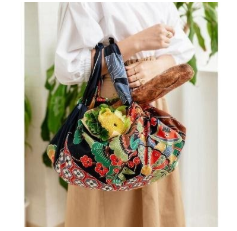In one of my previous assignments, I had this awesome opportunity to work on a coffee table book. Awesome because, I love those décor books (and own some good ones) and because I learnt a lot about sustainable practices from around the world. More on that later. For now, let me tell you a little bit about how writing a chapter on ‘Furoshiki’ for the book opened my mind to many things Japanese. Every once in a while I have one or other Japanese companion with me, in the form of a practice, a book or even food. I am sharing the ones relevant to us in today’s times.
Since I am Sikkimese, I grew up watching the pink blossoms in winters too, but didn’t quite enjoy them. They signaled the beginning of our Annual School Exams and we were always walking bent into our books that we totally missed smelling those flowers on the way, atleast I did. Next tryst with anything remotely Japanese was the book by Arthur Golden, ‘Memoirs of a Geisha’ which I read when it was released in the late 90’s. Fascinating how a book takes you to a place you’ve never been, even more so when you can relate to parts of the story and enjoy a really great book.
Much later, past college, into worklife I was sitting with my laptop researching ‘Furoshiki’ for the coffee table book. With that piece of cloth, I was once again brought in touch with Japan and its culture.
Furoshiki and Sustainable Living 
Yes, Furoshiki is a Japanese wrapping cloth. They are designed to be knotted in a manner that makes it easy to carry around small parcels such as tiffin boxes, cosmetics and other small everyday things and are used for gift-wrapping as well. Cloth being reusable is environment friendly as well as user-friendly and flexible enough to twist and turn into knots, to the likes of the parcel. A totally sustainable practice worth emulating from Japan. Here’s a video on how to use ‘Furoshiki’.
The Devotion of Suspect X
For a long time, the only Japanese novelist I had been reading was Haruki Murakami. While I tried a lot of Murakami and it was a fantastic read, it truly doesn’t come out Japanese. And besides my favourite genre is suspense. With a busy schedule and travels, I love sharp and immersive reads. I met my match with Keigo Higashino’s ‘The Devotion of Suspect X’. Unfortunately, looks like, I read faster than he can write ☺. I have read every one of his books, and each one is as good as the next. In his books you get to read a suspense based in Japan with some precise mathematics. Airport read, sure, but definitely a must-read Japanese writer.
The art of discarding 
I would have chosen the title from Marie Kondo’s book ‘The life changing art of tidying up’, but I am not a tidy person and nor in my heart of hearts I want to become one. I love having my favourite things around me, creating a rather untidy but cosy atmosphere. The ‘KonMarie’ method is popular for arranging or decluttering each and every space in your house. Marie says, look at a thing and ask ‘Does this spark joy?’, if it doesn’t discard it. Marie Kondo with her impeccable style and beauty is very popular. However, Japan and its art of decluttering and simple living has been there for centuries. I read the book ‘the art of discarding’ by Nagisa Tatsumi and although dated, you get a sense of the Japanese culture of being clutter free. This art has inspired people to not just declutter every space in the house but also at workplace, in relationships and overall in the mind, body and soul. Modern experts prescribe this as the best way to live a healthy life, in today’s times. Now you can look at a person or an assignment and ask yourself, ‘does this spark joy?’ ☺

Finding your purpose with Igikai
You’ve heard of Hygge or maybe not. It is a Danish concept of achieving sublimity. It’s a great concept and I love it. However, when it comes to career-centricity or work, it’s the Japanese Igikai, which takes the cake as a popular concept to help businesses and teams find their purpose and thereby find fulfillment in life. It’s that point where your skills, passion and mission are aligned. Its popularity is its simplicity. To achieve your purpose you ask yourself:
What do you love?
What does the world need?
What can you be paid for?
What are you good at?
Here’s an article to help you with Igikai.
There are fascinating cultures and concepts from all over the world and the above are some of the gifts from Japan to the world, like free and open source software. Arigatō





Be the first to comment on "Gifts from Japan"